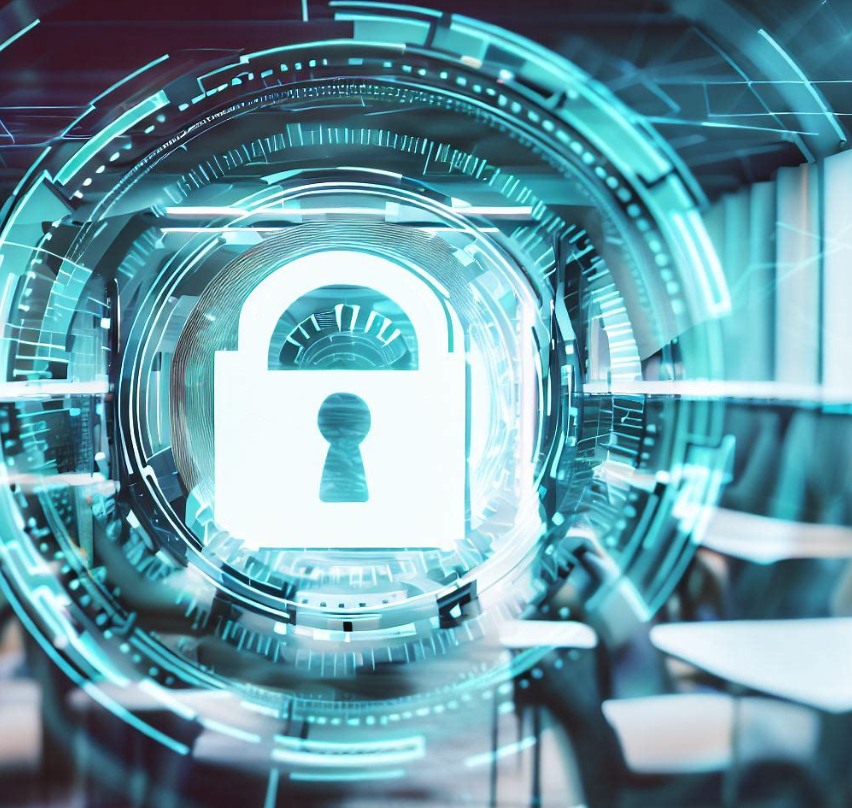
Expanding the ever-evolving virtual horizon, digital workspaces are making their way to the fore, pushing businesses to work through complex tasks smoothly. This clear shift from physical offices to more flexible, digital environments has put a spotlight on one key area that can’t be overlooked—cybersecurity.
The urgency for stringent cybersecurity measures within these modernized workspaces is not just a basic requirement; it is a matter of pressing concern. Companies, as they start to allocate workload remotely, become increasingly susceptible to the hazards of cyber-attacks. The cyber threat universe is constantly widening, as criminals engage in a relentless pursuit of crafty ways to exploit possible weak points in a network’s defense. This growing risk factor necessitates an unyielding, impregnable cyber defense system to fight off likely threats.
The realm of data security garners considerable attention in any online operating business. The recent surge of data breaches underscores the need for an effective cybersecurity framework. If left unaddressed, poor cybersecurity measures in a digital workspace can lead to a myriad of problems. Unauthorized intrusion, compromising of classified data, and even upheaval of business continuity, all severely daunting outcomes, are a grim possibility.
The alarming rise in cyber threats presses for a cybersecurity mechanism that is regularly audited and improved upon. A lax approach towards cybersecurity standards in a digital workspace is likely to leave it potentially exposed to cyber-attacks. The proliferation of online businesses means an equal rise in the cyber-threat landscape, pressing businesses to constantly upgrade their existing defense mechanism.
Emerging technology has provided us with great convenience, but it has also opened up a myriad of risks. The surge in digital workplaces necessitates enhanced emphasis on the importance of cybersecurity. It is no longer a luxury or a secondary thought, it is an absolute necessity. Security measures need to be active and continuously updated in the ever-changing digital landscapes of virtual workspaces.
Adopting Effective Cybersecurity Strategies
Ensuring effective cybersecurity strategies are paramount in addressing risks associated with digital platforms. The scaffolding which upholds the entire structure of online businesses is fortified through these strategies. By implementing a range of methods, the potential for harmful cyber threats can be greatly reduced.
Safeguarding network connections should be a top priority. For business matters, virtual team members must be pushed to use only VPN during online sessions. Serving as a pathway for data transfer, VPNs offer an encrypted internet connection. This particular feature substantially increases the difficulty for hackers to intercept and infiltrate your system.
Educating team members about existing and potential cyber threats is an essential step. They should be fully equipped to understand and mitigate any potential cyber risks by being well-versed in secure practices. These include exercising caution when receiving suspicious emails, refraining from clicking on unsure links, avoiding potentially harmful software downloads, and ensuring the use of robust and unique passwords for all platforms. Empowering your team with necessary training can turn them into the first line of defense against cyber threats, adding an extra layer of security to your online business.

Another stern strategy involves the implementation of rigid access controls. Many times, there is vital information that doesn’t need to be accessed by every single team member. By delineating and limiting access to sensitive business information, the possibility of an information breach can be drastically reduced.
Implementing regular system updates and cybersecurity audits is also essential. Keeping software and systems up to date ensures that the latest security patches are applied, blocking any security loopholes that hackers might exploit. On the other hand, cybersecurity audits provide a deeper insight into the existing security measures’ efficacy and indicate where improvements are needed.
From the careful establishment of secure connections to thorough teammate education, and from implementing rigid access controls to keeping systems updated and audited, adopting these cybersecurity strategies will provide a robust security scaffolding. This can thwart most cyber threats, reinforcing the overall value and security of your online business.
The Future of Cybersecurity in Virtual Workspaces
The progression of virtual workspaces is a pivotal factor that has given birth to more severe cybersecurity impediments that corporate sectors are predicted to grapple with in the imminent time. Technological progressions are altering the nature of work, thus making it mandatory for businesses to adapt and upgrade their security systems. As technology barrels ahead, so does the intricacy and expertise of cyber threats, which have risen exponentially in both quantity and quality. The globe observes a significant surge in advanced persistent attacks, reinforcing the incessant need to enhance cybersecurity measures.
Peering into the not-so-distant future, cybersecurity’s evolution hinges on a more preemptive approach. Emphasis is on the early prevention, identification, and reaction tactics based on high-caliber technologies such as Artificial Intelligence (AI) and Machine Learning (ML). Rather than being merely responsive, these high-powered technologies have the capability to scrutinize user behavior, project potential threats, and respond instantly to neutralize them.
Adaptive authentication highlights a trend that cybersecurity experts believe will revolutionize how virtual workspaces are secured. It leverages the true power of AI and ML to authenticate user identity while keeping context into consideration. This trend is predicted to gain more traction in the near future, becoming a go-to strategy for ensuring the cybersecurity of virtual workspaces.
Envisioning the coming era, the assimilation of blockchain technology stands to play a crucial role in boosting cybersecurity. The unique attributes of blockchain – decentralization, transparency, and immutability – qualify it as a potent solution for safeguarding data transmission and sheltering digital transactions from potential threats.
The current digital scene demonstrates the growing importance of virtual workspaces as integral components of businesses. With it grows the need for continual evolution, especially in cybersecurity measures which should constantly adapt and improve to stay one step ahead of potential cyber threats. The critical role of cybersecurity in the safe functioning of virtual workspaces cannot be emphasized enough, and it is imperative that organizations recognize this necessity. It is essential for them to invest in futuristic, technology-driven cybersecurity measures to effectively safeguard their virtual workspaces.